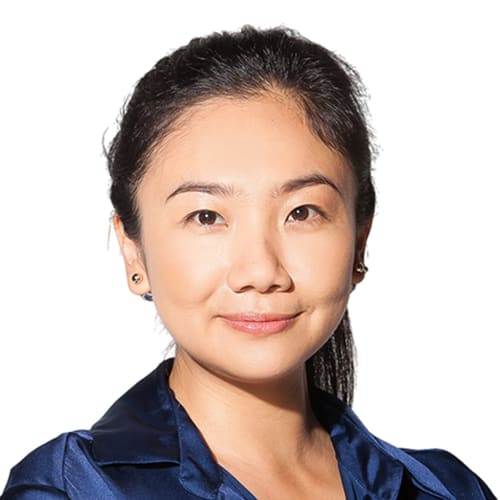On the Thai island of Phuket, sun, sea and Russians making waves
Since the invasion of Ukraine, some Russians have moved to Thailand, escaping conscription or the dour economy back home. How do locals feel about this group’s growing presence in Phuket? The programme Insight explores the impact.
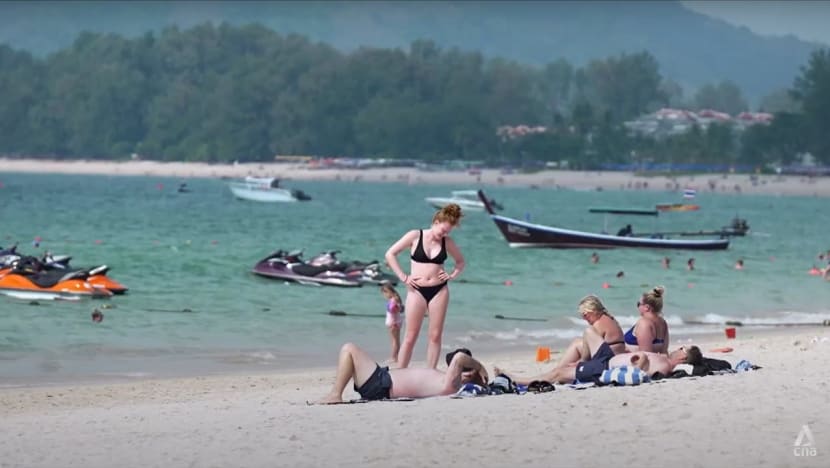
For many travellers to Thailand, the destination of choice is Phuket.

This audio is generated by an AI tool.
PHUKET: Vladimir Yeremenko moved to Phuket four years ago after working in different parts of the world.
His speciality is property, and villas are popping up round the island off the south-west coast of Thailand. Prices start at US$300,000 (S$400,000) and can go up to US$18 million or more.
Traditionally, Chinese buyers dominate the luxury property market in Thailand. But as demand rises, Yeremenko has seen the growth of another group of clients since 2022: Russians.
“(There’s) demand in different segments. More and more enquiries we have (are) for the luxury properties, like beachfront villas or at least … villas (with a sea view),” he said.
Since the invasion of Ukraine — Feb 24 marked the second anniversary — Russia has seen a massive capital outflow.
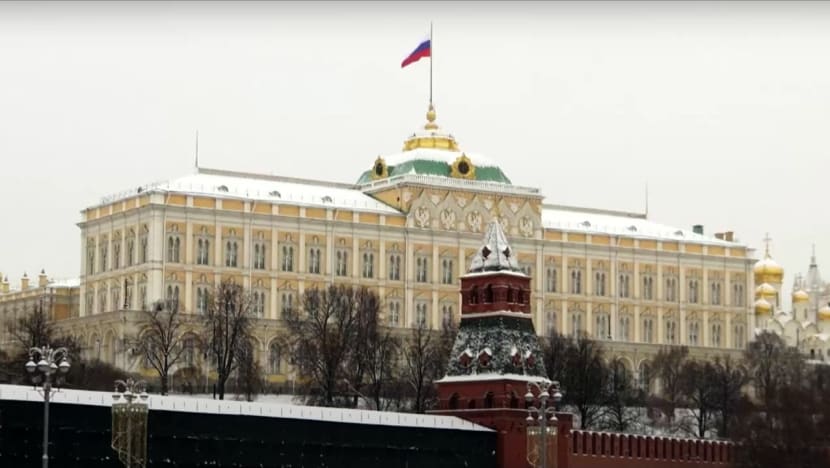
According to the Centre for Macroeconomic Analysis and Short-Term Forecasting, a Moscow-based think-tank, Russia saw a record nett outflow of US$239 billion in 2022 alone, four times the outflow in 2021.
In this flight of capital to investment opportunities outside the Russian economy, which has been hobbled by sanctions, Phuket has “emerged as one of the target destinations”, said Phuket Real Estate Association general secretary and vice-president Phattanan Phisutvimol.
“The luxury sector boom is astonishing. About 4,000 units of luxury villas are being developed in Phuket this year, which is a lot, as the number doesn’t include luxury condominiums.”
The top five foreign investors in property on Phuket are the Chinese, Russians, Americans, Germans and other Europeans, he cited. In 2022, Russians were the largest group of foreign buyers in terms of condominium transfers, reported the Bangkok Post.
WATCH: Thailand’s ‘Little Russia’ — Why rich tourists are rushing to buy Phuket’s luxury houses (8:26)
“For the Russian market, I think this is just the beginning,” said Phattanan.
Apart from investing, some wealthy Russians have sought to make a home on the island located in the Andaman Sea. Citing immigration officials, news site Khaosod English reported in September that 9,275 Russians living here have long-term visas.
This would include visas known as the Thailand Privilege Card. Fees start at 900,000 baht (S$34,000) for a five-year period and go up to 5 million baht for a stay of 20 years or more.
“People are starting to look for their second home,” said Yeremenko, who is with property group FazWaz.
“A lot of people decided to relocate to Phuket because Phuket was one of the most popular and attractive destinations when those people were tourists. And it’s not far from (the) eastern part of Russia.”
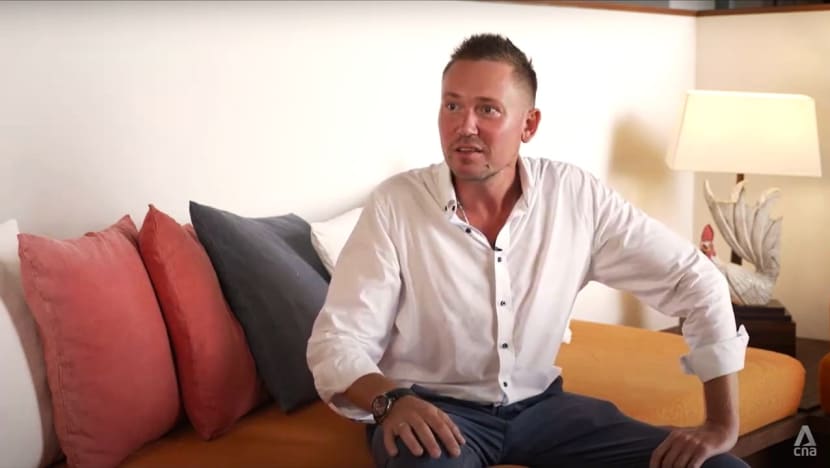
Over a million Russians visited Phuket last year, its biggest group of foreign visitors, according to the Phuket Tourist Association. And the signs of their growing community range from store signs in Cyrillic to property advertisements targeted at Russian buyers.
With more of them continuing to arrive in one of Thailand’s top tourist destinations — as visitors or property investors — the programme Insight explores the impact on some of Phuket’s 400,000 residents.
SURGING PRICES
Under Thai law, foreigners can fully own condominium units, subject to certain quotas. But they cannot buy or own land in their name.
Still, loopholes exist. Foreigners can lease the land or house from a Thai for up to 30 years. They can buy property through a company if, for example, 51 per cent of the company’s shares are held by Thais.
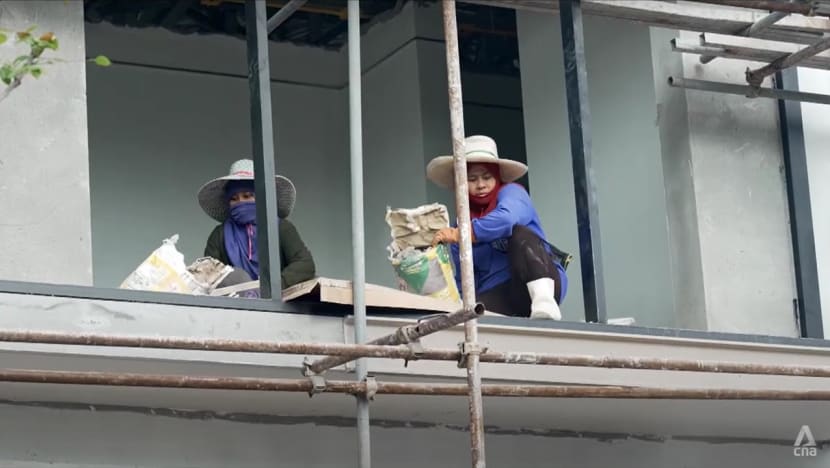
“This has become a problem that the government is worried about,” said Phattanan, referring to companies being set up to act as a nominee. “The government is exploring how to solve this without causing an impact on investment.
“It’s a legal loophole. It isn’t against the law.”
During the pandemic, developers had to pause or abandon their projects because there was no investment or tourism. When visitors returned, and the construction industry — yet to get back on its feet — could not match the demand, property prices surged.
“At the beginning of last year, a rai (1,600 square metres) of land in Laguna, Bang Jo or nearby areas would’ve cost about three to five million baht,” said Phattanan. “Today, … you’d have to pay eight to 15 million baht.
“It means entrepreneurs are currently shouldering a very high cost, not to mention the construction cost, which has also gone up. All these factors have translated into an increase in the market prices of real estate.”
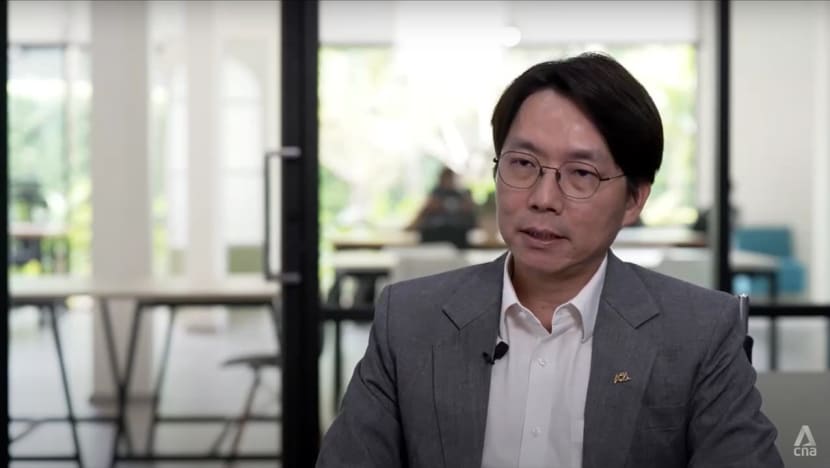
Some of the prices are “higher than the price of housing overseas”, said business owner Katesiree Wise from Bangkok, who moved to Phuket two years ago and is renting a house with her husband.
She cited a newly developed residential complex that caught her eye. Its prices start at 35 million baht and go up to “more than 100 million baht”.
“That area probably targets foreigners rather than Thais,” she said about the Choeng Thale sub-district.
Although foreign buyers are concentrated in the luxury segment, there are downstream effects: Phuket’s rental market is seeing an uptick, and some locals are being priced out of popular tourist areas such as the old town.
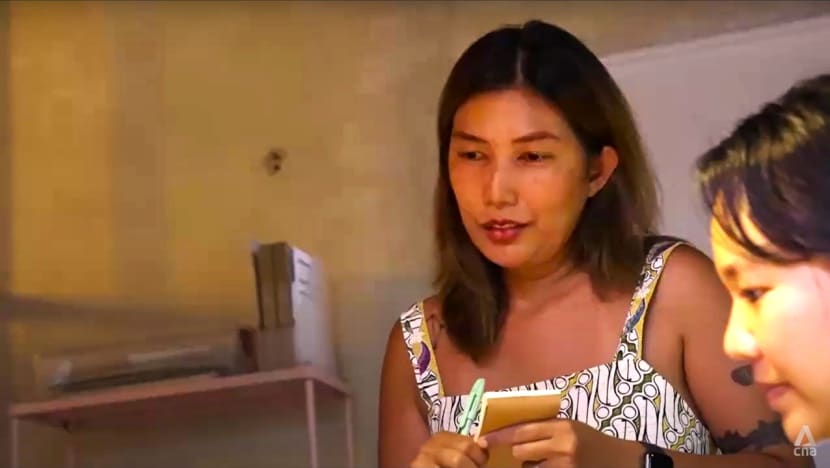
“In 2023, after our country had opened up, and tourists had started to return, rentals doubled or even tripled in some cases,” said Katesiree, who listed launderettes and bicycle shops among businesses that have “faced a huge increase” in rent.
“The survival of old and local businesses in the old town will likely become more challenging. Perhaps only those with huge amounts of capital can come here to invest.”
She herself owns a souvenir shop with her husband. They plan to expand into hospitality and are looking to rent a building and sub-let it to tourists. But some areas are beyond their budget.
The crowding-out effect of Phuket’s foreign investors on locals is an aspect “we don’t really talk about”, said Chayanon Phucharoen in the Faculty of Hospitality and Tourism at the Prince of Songkla University, Phuket campus.
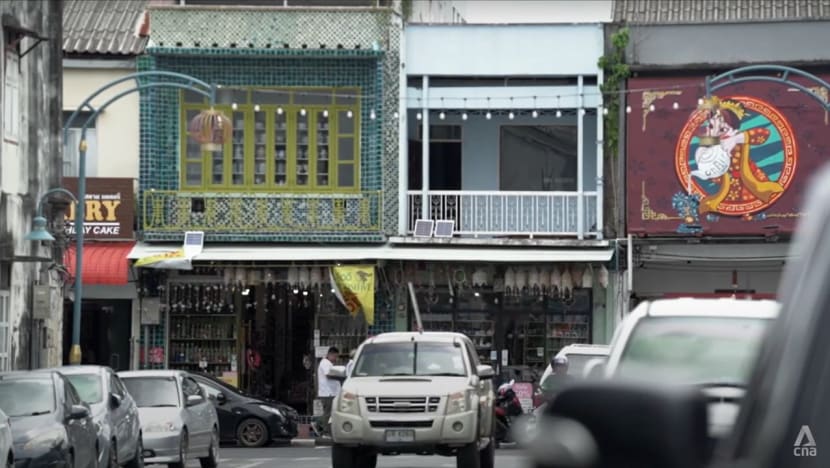
“People on low incomes are greatly affected. For example, people who … have a chicken rice restaurant now have foreign competitors who are also interested in renting the space. As a result, the rental … will increase,” he said.
“We need to expand our knowledge about this issue in order to direct tourism at present towards sustainability. Sustainability in this context doesn’t just cover the environment, but also how locals can benefit from tourism.”
STEALING JOBS
Beyond property prices, there are other areas of growing friction between locals and Russian newcomers that concern livelihoods.
“Since the war broke out, a large number of Russians have started to travel to Thailand and Phuket. And the problem of illegal work has increased,” said Lieutenant Colonel Akachai Siri, chief of the Phuket Tourist Police.
Some occupations in Thailand, such as guiding tours, hairdressing and driving taxis, are reserved for Thais. And many of the reports of foreigners working illegally in Phuket involve Russians taking jobs from locals recovering from the pandemic.
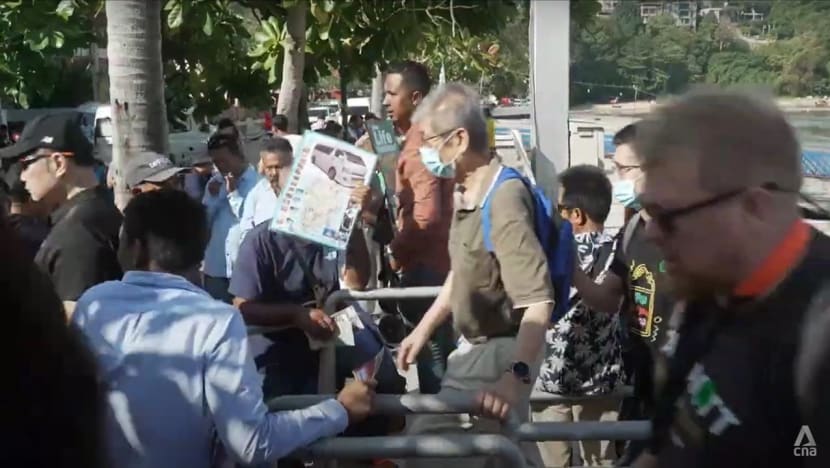
“They’d drive their rental cars to pick up passengers. Then they can sell their own tour packages as well, because the passengers are already their customers,” said tour guide Krich Thepbamrung.
“Thai tour guides who can speak Russian (have also) complained that they couldn’t get a job with a Russian company that services Russian customers. One of the reasons is that it already has shady Russian employees working for it.”
He showed Insight a photograph of a sticker in Russian advertising tours round Phuket. Messages such as these, he said, can be found in areas popular among Russians.
“The best Russian taxi. Visit big Buddha, tiger park, elephant camp, pearl farm, jewellery factory, … a monkey show, a snake show and central department store,” he said, reading out the translated message. “They’ve also provided their phone number.”

Each day, tourist police make their rounds of the coastal areas and the old town, keeping a lookout for illegal activities.
“The Russians have advantages over Thai business owners as they know how to market their services,” said Akachai. “They can use mobile applications that are widely used by Russians, such as Telegram, WhatsApp and Facebook.
If they’re caught, they’ll be … sent back to their country. They can’t re-enter (Thailand) as they’ll be blacklisted.”
This problem is not new to Phuket, though. Other groups have been on the radar screen before, according to Bhummikitti Ruktaengam, an adviser to the Phuket Tourist Association.
“About 10 years, there were large numbers of (South) Korean honeymooners. We experienced this exact problem then, with Koreans setting up their own businesses — restaurants and travel agencies — here. When their number started to drop, this problem dissipated,” he recalled.
The problem recurred when there was an influx of Chinese tourists. So he is “not surprised” some Russians are now trying to “seek opportunities for themselves” from their countrymen here.
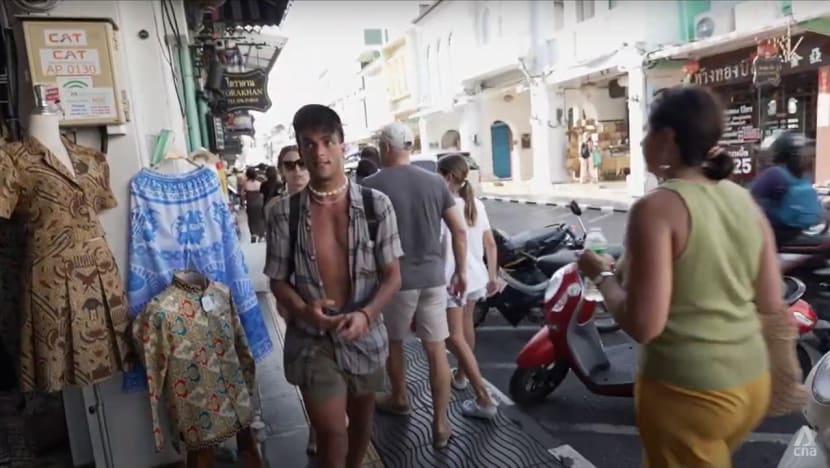
“I’ve been told by many locals that they’ve seen Russians driving other Russians around in vans. When the police approached them, they said those in the van were all their friends,” he added.
For the tourist police, said Akachai, “the first challenge” during interrogations is language. “Tourist police have all passed a language test, but it was in English,” he added. “When it comes to Russian, it’s much more difficult.”
Based on their investigations and previous arrests of Russians working illegally, about 90 per cent of them entered Thailand on a tourist visa. “Some had come here for the first time. Others had done visa runs,” he disclosed.
“We don’t want the government’s main objective, which is to attract as many tourists as possible, to be exploited by shady individuals who may come in as tourists. … Most Russian tourists are quality tourists.”
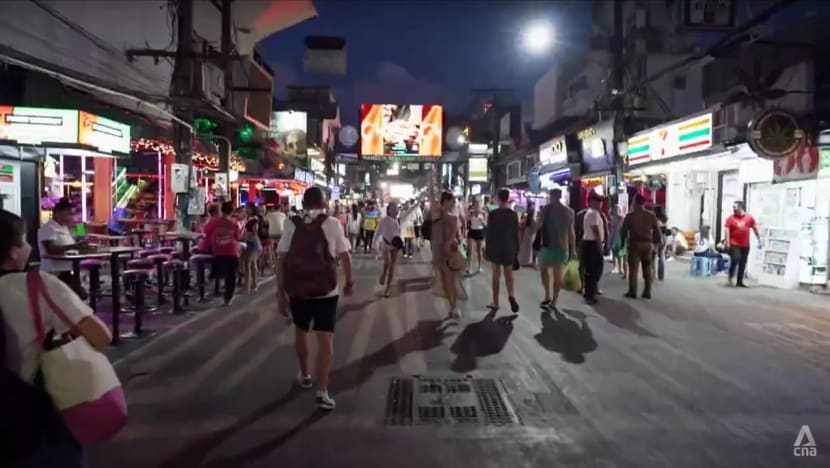
A BOOST TO RECOVERY
In the end, while there have been reports of tension between Thais and Russian visitors, what Insight found on the ground was more nuanced. Many Phuket residents, such as Apichai Mohamad, have taken the new arrivals in their stride.
“There are news reports about mafia gangs, but that’s what they said. I’ve never experienced it myself. They might have some issues and quarrels among themselves, but mostly these would be resolved by the authorities,” said Apichai.
There are both good and bad people, regardless of which country they come from.”
Thailand is particularly dependent on tourism, which accounted for nearly a fifth of its economy before the pandemic. This is even more pronounced in a place like Phuket, where the annual income generated from tourists was around 400 billion baht.
Last year, the influx of Russians helped Phuket’s tourist industry to recover. And for Supradit Chariyasophit, who has run a language school here for 14 years, their arrival was the boost his business needed.
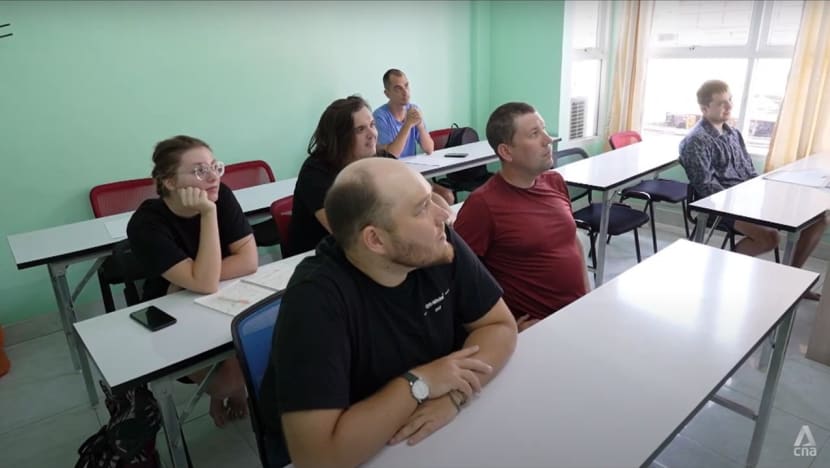
“The number of Russian students … before COVID-19 was about 100 per year,” said the owner of The Genius Language School. “In 2022, the number shot up to 300 to 400 students. … They study Thai and English.
“So many Russians have come here as a result of the war that … there weren’t enough seats for them. That’s why many schools have expanded their branches. Some people who saw the opportunity have opened new language schools as well.”
More and more Russians are in Phuket for a long stay, said Bhummikitti, who cited the 6,000 student visas granted to this group last year.
“The group staying long-term greatly benefits Thailand because they can stimulate the economy and help distribute money to many different sectors,” added Supradit.
“People who enrol for a course at a language school might also bring their children to Thailand, where they’d go to international schools. They might bring their parents to help look after the children, and that’d lead to more spending.”
WATCH: Russians flock to Thailand after war in Ukraine — Are they welcome? (45:33)
Last year, Russians were the fifth-largest group of visitors to Thailand. It is a trend that looks to continue. This January, the kingdom welcomed nearly 220,000 Russian travellers — the fourth-largest group of visitors, after the Chinese, Malaysians and South Koreans.
A government announcement in October made Thailand more attractive to Russians. From November to this April, they can stay visa-free for 90 days, up from 30 days.
“Dimitri” is among those who seized this opportunity. He had left Russia in the autumn of 2022, when the situation back home became difficult, and Russia began mobilising conscripts for the war. He spoke to Insight on condition of anonymity.
“I escaped the war; I relocated to Georgia. But my family is still in Russia,” said Dimitri, who is married with two children. “I don’t have an opportunity (to bring them along) because of school, because of the financial situation.”
While living in Georgia, he travelled to Phuket, “liked the place” and returned after the visa-exemption period for Russians was increased. He works remotely and transfers money home to support his family.
“(In the short term), maybe my family will join me. Or maybe I do have to return to them to find a short-term solution. But I still don’t know which one,” he said. “It’s very hard for our family.”
Watch this episode of Insight here. The programme airs on Thursdays at 9pm.









